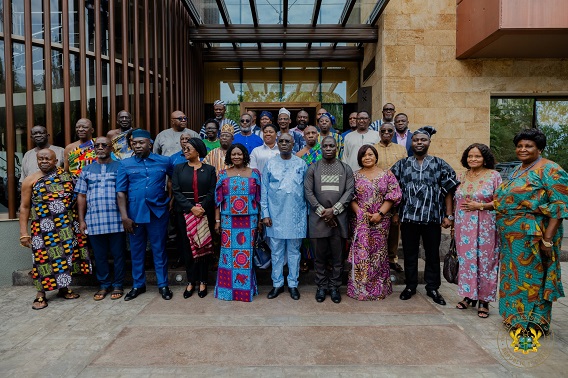The Vice President, Professor Naana Jane Opoku-Agyemang, has charged the newly-constituted Council of State to transform itself from the perceived “passive advisory body” into an “active institution” that demands accountability.
Vice President Prof. Opoku-Agyemang said the Council remained pivotal to national development and must contribute to the shaping of government policies rather than being a rubber stamp of predetermined decisions.
“You must endeavour to contribute to the shaping of government policies at their inceptions and ensure that major policy choices are meticulously guided by the principles of accountability, equity and long-term mutual interests.
“Your tenure must redefine the Council’s role and transform it from the perceived passive advisory body into an active institution that anticipates challenges, offers bold recommendations and demands accountability,” she said.
The Vice President made this demand at the orientation for members of the 9th Council of the Fourth Republic at Peduase in the Eastern Region yesterday.
According to her, Ghana was at a pivotal moment of its democratic experiment and citizens are unequivocal in their demand for a paradigm shift from how things have been done over the years.
“They demand a governance structure that elevates national development above partisan proclivities (and only) institutional resilience that transforms above the transients of political power” could deliver that structure, the Vice President said.
This demand, she said, was evident in the mandate given the John Mahama government to reset the country; a challenge she said the administration has accepted.
To her, the reset agenda was not a mere rhetoric but a pressing demand to overhaul the systems that have hindered the country’s advancement and create a governance model that is effective, forward-looking and suited to the challenges and opportunities of the 21st century.
“The Council of State is pivotal to this overarching mission of national renewal and transformation” and must “dispel the popular accusation of merely existing to validate already determined decisions”, she said.
The Chairman of the Council, Edward Doe Adjaho, said with the vast and varied experiences of members, they were ready to help shape the country’s direction through steady leadership and clear vision with a commitment to preserve the national interest and integrity and speaking truth to power.
Mr Adjaho, a former Speaker of Parliament urged that the Council leveraged its prestige and visibility to guide the President and other institutions of state and reassure young people that, there is a future for them.
“Let us try to offer fresh ideas from our accomplishments, the depth of our traditional leadership wisdom, private and public experiences to give deep meaning to our tasks and advance the needs of Ghanaians and not the political class.
“Let us endeavor to put people first. Upholding the law and ensuring genuine care for people must be paramount in our deliberations when we proffer advice to the President of the republic. We must speak truth to those that we advise, engage with leadership and the people, connect with policy decisions to tackle the challenges facing our democracy,” he stressed.
The above, he said, was the surest way their deliberations could benefit both government and the Ghanaian public.
“Our performance, evaluations and recommendations, will speak to the relevance of the ninth Council,” he stated.





